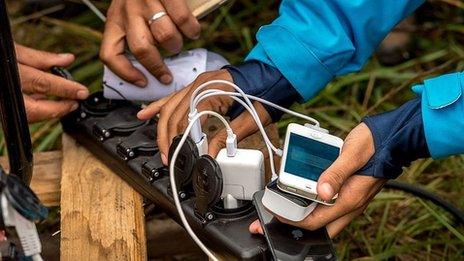Lithium battery warning after Cambridgeshire bin lorry fires
- Published
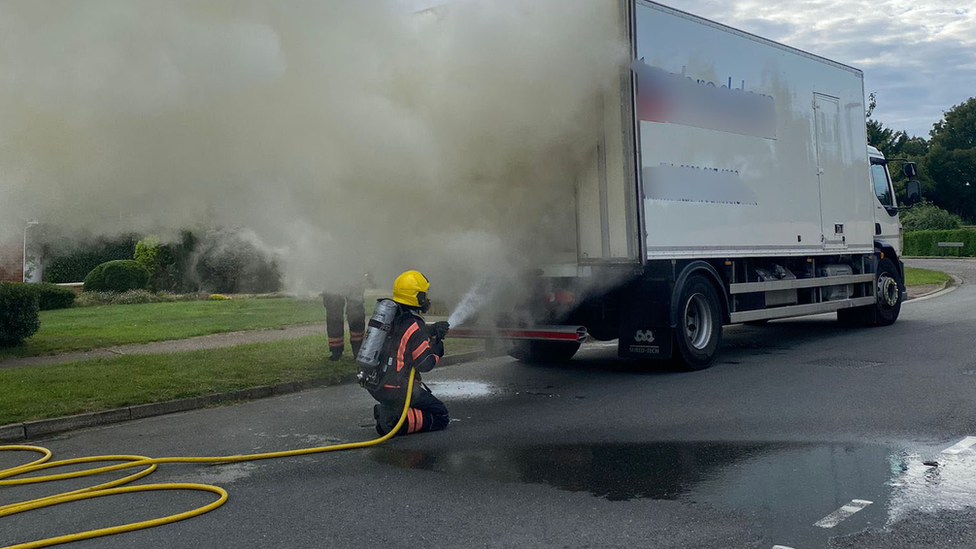
Fire crews in Peterborough fighting the lorry fire in Bretton
The fire service is warning about the dangers of throwing out lithium batteries after two separate blazes in bin lorries within an hour of each other.
Crews were called to two fires in Cambridge and Peterborough.
Both were caused by lithium-ion batteries being thrown out with household waste, the county fire service said.
Station commander Gareth Boyd said the practice was "putting people at risk".
A crew was called just after 07:00 BST on Wednesday to a fire in a rubbish lorry on Hauxton Road in the Trumpington area of Cambridge.
Then about 08:00, crews were called to a similar lorry fire in Bretton in Peterborough.
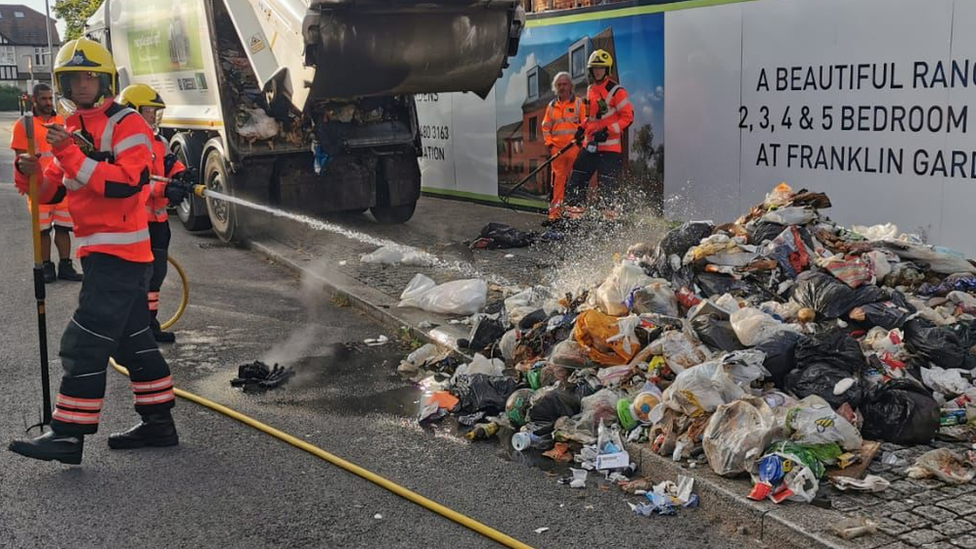
Firefighters dowsing the refuse in Trumpington
The fire service called on people to make sure they disposed of old batteries carefully, either at shops with a battery bank or at a recycling centre.
It said across the country 48% of all waste fires were being caused by lithium-ion batteries.
Mr Boyd, community risk manager for the service, said: "We have seen an increase in fires involving batteries in refuse lorries over recent months.
"Due to the heat generated and the crushing of the batteries during the process, the lithium in the batteries will set fire to the waste in the lorry.
"Our crews work with the refuse collectors to empty the vehicle to prevent the fire from spreading, but this involves significant disruption to the road network.
"Please do not dispose of any battery types, small or large, in household waste or recycling bins. These cause unnecessary and avoidable fires and put people at risk."
In December 2022, The Environmental Services Association said lithium battery fires were costing fire services and waste operators some £158m a year. It said 700 fires were caused every year by the batteries being thrown out.

Lithium-ion batteries
The main type of rechargeable battery in portable consumer electronics, they consist of two electrodes divided by a separator that allows charged particles - lithium ions - to flow, through a solvent, from one to the other.
If the battery is intact and contained, it is generally very safe.
But if the electrodes make direct contact with each other, it can cause all the charged particles to suddenly discharge in an explosion, which, as the chemicals inside the battery are flammable, can quickly cause a fire.

Follow East of England news on Facebook, external, Instagram, external and Twitter, external. Got a story? Email eastofenglandnews@bbc.co.uk or WhatsApp 0800 169 1830
Related topics
- Published7 March 2023
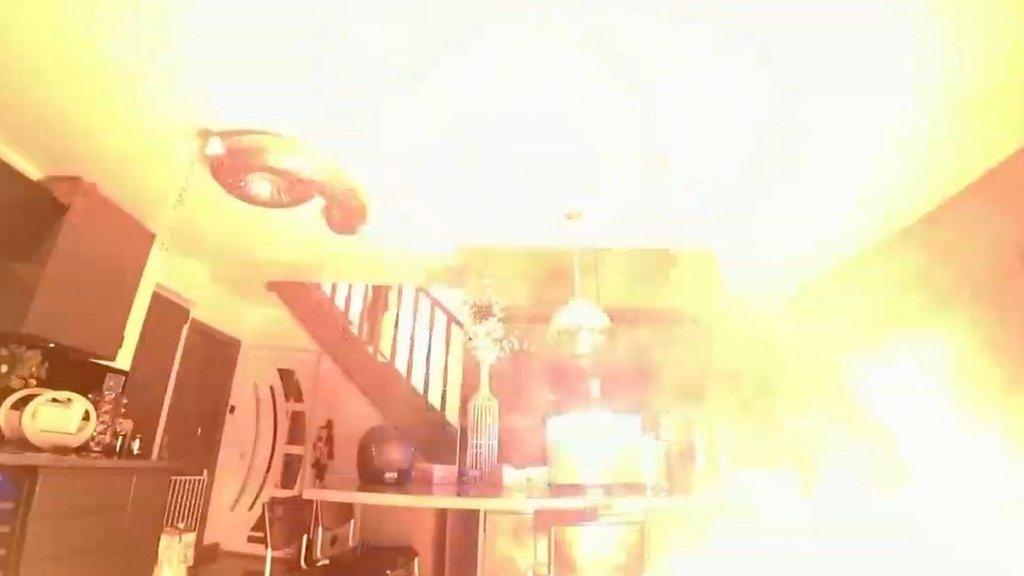
- Published13 July 2023
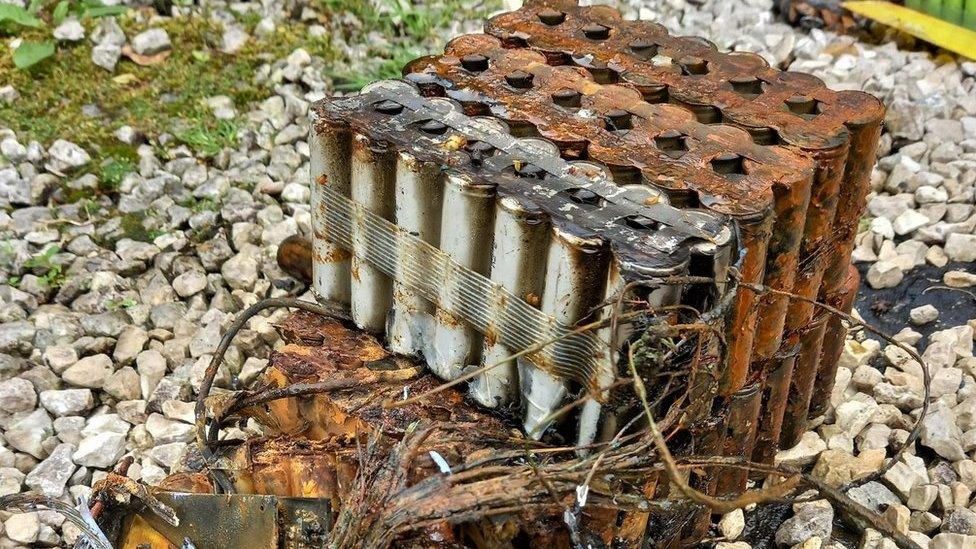
- Published4 July 2023
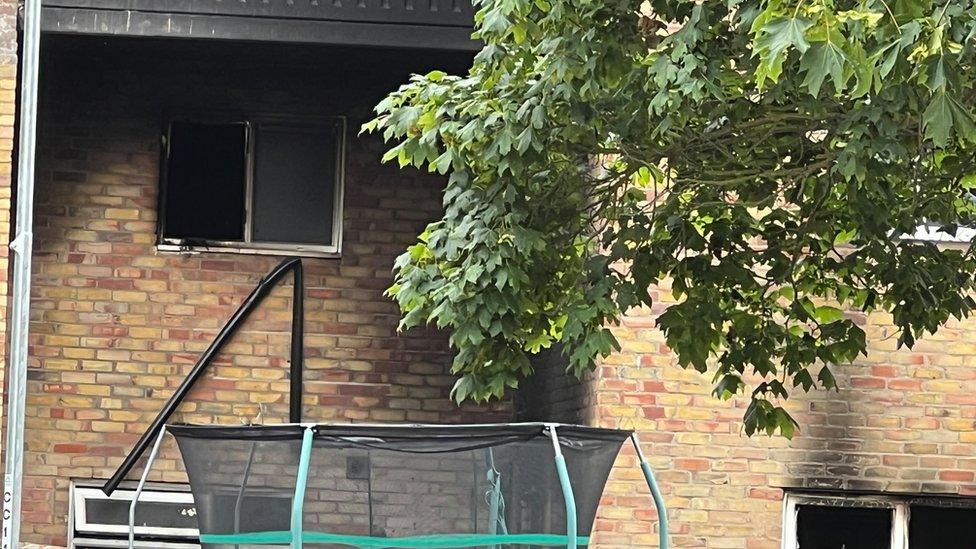
- Published6 January 2023
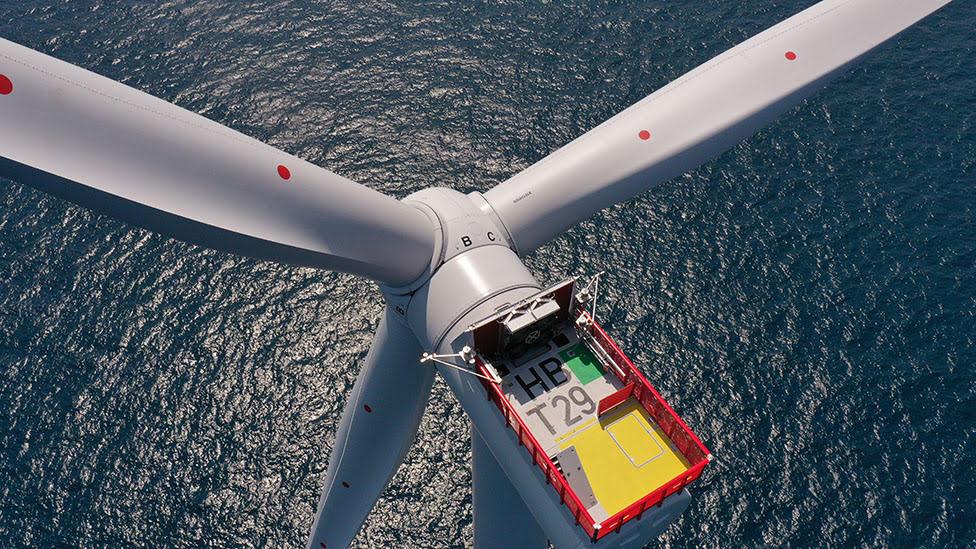
- Published7 September 2017
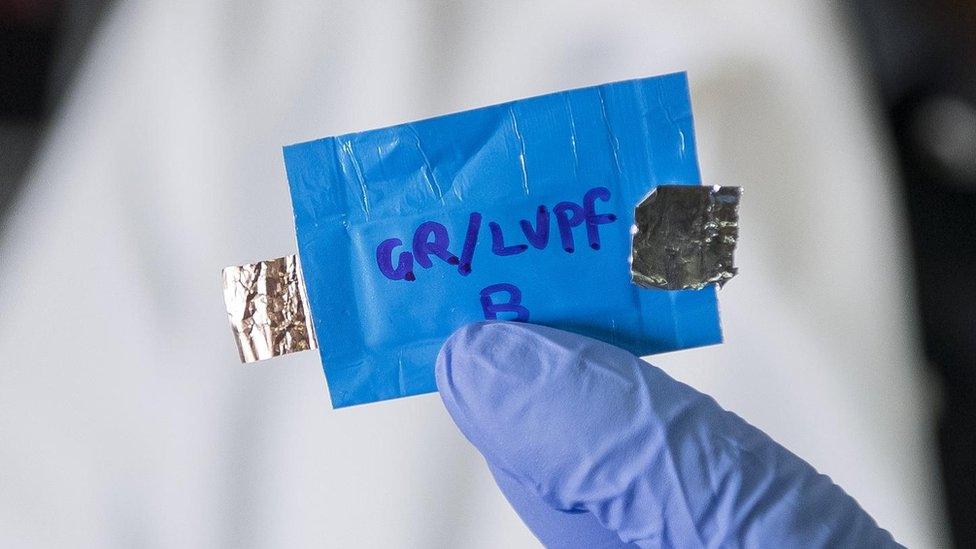
- Published2 September 2016
